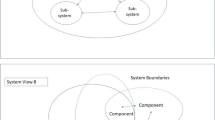Abstract
The evolution of work organizational models and of technology poses an unprecedented set of challenges and opportunities for ensuring workers’ well-being. After an overview of the evolution of these two aspects and the role of humans with their respect, we will frame the current and near-future developments according to the job demands-resources model, where humans’ well-being depends on the good balance between job demands (workload, stress, risks, etc.) and job resources, both personal (resilience, optimism, etc.) and job-related (organizational and technological support). Adaptive automation and artificial intelligence have the potential to become job resources rather than job demands, but only if a proper design is set. Central to the design is the notion of plasticity, i.e., the capacity of an element to adapt to changes in its coupling with interacting elements. We will discuss two forms of plasticity in the relationship between humans and technology. Short-term plasticity is mainly based on the immediate adaptation of technology to human needs and performance. The long-term plasticity is based on the co-evolution of humans and technology, where changes concern not just the mere performance, but wider and long-lasting aspects like knowledge, culture, identities, approaches, job frameworks. Organization is crucial to foster this kind of co-evolution, towards a new framework, called transfactory, where human needs and values govern the overall systems evolution.
Access this chapter
Tax calculation will be finalised at checkout
Purchases are for personal use only
Similar content being viewed by others
References
Bruzzone, A.A., D’Addona, D.M.: Mind, machines and manufacturing: a philosophical essay on machining. Procedia CIRP 79, 580–585 (2019)
Kagermann, H., Lukas, W.D., Wahlster, W.: Industrie 4.0: Mit dem Internet der Dinge auf dem Weg zur 4. industriellen Revolution, VDI news, 2011, 1 April 2011 (2011)
Kagermann, H., Wahlster, W.D., Helbig, J.: Recommendations for Implementing the Strategic Initiative Industrie 4.0, Frankfurt (2013). https://doi.org/10.1016/0375-9601(80)90605-2
Schwab, K.: The Fourth Industrial Revolution. Currency (2017)
Önday, Ö.: Society 50 - its historical logic and its structural development. J. Sci. Rep. 2(1), 32–42 (2020). https://doi.org/10.5281/zenodo.3731954
Carpanzano, E., Jovane, F.: Advanced automation solutions for future adaptive factories. CIRP Ann. Manuf. Technol. 56(1), 435–438 (2007)
Endsley, M.R., Kiris, E.O.: The out-of-the-loop performance problem and level of control in automation. Hum. Factors 37(2), 381–394 (1995)
Lee, J.D., Seppelt, B.D.: Human factors and ergonomics in automation design, 3rd edn. In: Handbook of Human Factors and Ergonomics, pp.1570–1596 (2006)
Onnasch, L., Wickens, C.D., Li, H., Manzey, D.: Human performance consequences of stages and levels of automation: an integrated meta-analysis. Hum. Factors 56(3), 476–488 (2014)
D’Addona, D.M., Bracco, F., Bettoni, A., Nishino, N., Carpanzano, E., Bruzzone, A.: Adaptive automation and human factors in manufacturing: an experimental assessment for a cognitive approach. CIRP Ann. 67(1), 455–458 (2018)
Valente, A., Mazzolini, M., Carpanzano, E.: An approach to design and develop reconfigurable control software for highly automated production systems. Int. J. Comput. Integr. Manuf. 28(3), 321–336 (2015)
May, G., Taisch, M., Bettoni, A., Maghazei, O., Matarazzo, A., Stahl, B.: A new human-centric factory model. Procedia CIRP 26, 103–108 (2015)
Bettoni, A., et al.: Mutualistic and adaptive human-machine collaboration based on machine learning in an injection moulding manufacturing line. In: Procedia CIRP – 2020 53rd CIRP Conference on Manufacturing Systems, vol. 93, pp. 395–400. Elsevier (2020)
Carpanzano, E., Bettoni, A., Julier, S., Costa, J.C., Oliveira, M.: Connecting humans to the loop of digitized factories’ automation systems. In: Ni, J., Majstorovic, V.D., Djurdjanovic, D. (eds.) AMP 2018. LNME, pp. 180–193. Springer, Cham (2018). https://doi.org/10.1007/978-3-319-89563-5_14
Bracco, F., Brunel, C., Piccinno, T.F., Sedaoui, A., Tazi, D.: Promoting safety through resilient organization managers: different ways of being resilient. In: Proceedings of the 3rd SAFRA Symposium, Paris, 9–10 February 2015 (2015)
Bakker, A.B., Demerouti, E.: Multiple levels in job demands-resources theory: Implications for employee well-being and performance. In: Diener, E., Oishi, S., Tay, L. (eds.) Handbook of Wellbeing. DEF Publishers, Salt Lake City, UT (2018)
Demerouti, E.: Turn digitalization and automation to a job resource. Appl. Psychol. (2020)
Hollnagel, E.: The four cornerstones of resilience engineering. In: Resilience Engineering Perspectives, vol. 2, pp. 139–156. CRC Press (2016)
Hollnagel, E.: Why is work-as-imagined different from work-as-done? In: Resilient Health Care, vol. 2, pp. 279–294. CRC Press (2017)
Ueda, K., Takenaka, T., Váncza, J., Monostori, L.: Value creation and decision-making in sustainable society. CIRP Ann. 58(2), 681–700 (2009). https://doi.org/10.1016/j.cirp.2009.09.010
Ryan, R.M., Deci, E.L.: The darker and brighter sides of human existence: basic psychological needs as a unifying concept. Psychol. Inq. 11, 319–338 (2000)
Van den Broeck, A., et al.: Self-determination theory: a theoretical and empirical overview in occupational health psychology. In: Occupational Health Psychology: European Perspectives on Research, Education, and Practice, vol. 3, pp. 63–88. Nottingham University Press, Nottingham (2008)
Manzocco, R.: Transhumanism. Engineering the Human Condition. Springer, Suiza (2019).https://doi.org/10.1007/978-3-030-04958-4
Author information
Authors and Affiliations
Corresponding author
Editor information
Editors and Affiliations
Rights and permissions
Copyright information
© 2023 The Author(s), under exclusive license to Springer Nature Switzerland AG
About this paper
Cite this paper
Bracco, F., Bruzzone, A.A., Carpanzano, E. (2023). Transfactory: Towards a New Technology-Human Manufacturing Co-evolution Framework. In: Valle, M., et al. Advances in System-Integrated Intelligence. SYSINT 2022. Lecture Notes in Networks and Systems, vol 546. Springer, Cham. https://doi.org/10.1007/978-3-031-16281-7_60
Download citation
DOI: https://doi.org/10.1007/978-3-031-16281-7_60
Published:
Publisher Name: Springer, Cham
Print ISBN: 978-3-031-16280-0
Online ISBN: 978-3-031-16281-7
eBook Packages: EngineeringEngineering (R0)




